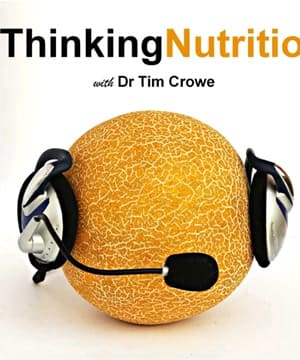素食的好处
Sources:
素食饮食有很多健康和环境方面的好处,以下是一些专家提供的信息:
-
心脏健康和慢性病预防: 素食饮食通常与较低的低密度脂蛋白(LDL)胆固醇水平、较低的血压和较低的高血压及2型糖尿病发生率相关。素食者通常也有较低的体重指数和总体癌症发生率。美国营养与饮食学会的立场文件指出,适当计划的素食饮食,包括全素食饮食,在预防和治疗某些疾病方面可能具有健康益处 1。
-
营养充足与健康成果: 针对素食者的大规模健康研究表明,他们与其他选择健康生活方式的人相比,患2型糖尿病、高血压、肥胖症和某些癌症的风险更低。此外,素食者的寿命倾向于更长 2。
-
环境保护: 从环境角度来看��,素食饮食减少了土地利用和温室气体排放。与食肉饮食相比,素食饮食可减少多达70%至80%的温室气体排放 3。
-
长寿蓝区研究: 在全世界的五个长寿"蓝区"中,人们的饮食主要以植物为主。这些地区的居民显示出极佳的健康和长寿记录 4。
-
素食对消化和抗炎的好处: 食用大量的未加工植物性食品,如水果、蔬菜、坚果和种子,可以改善消化并具有抗炎属性。这种饮食方式也适用于现代人,由于活动量较少,食用热量密度较低的食物更为合理 5。
综上所述,素食饮食在多个方面对健康和环境具有积极影响,但需要适当的计划和营养管理以确保全面的营养摄入。
RELATED QUESTIONS-
如何搭配健康的素食饮食?
如何平稳地过渡到素食饮食?
Sources:
平稳地过渡到素��食饮食需要逐步进行,以下是几个具体建议:
-
逐步引入:
-
找到喜欢的素食版本:
-
多样化和创造性:
-
获得支持:
- 寻找可以一起分享和交流素食食谱的朋友或家人,这样可以彼此鼓励和支持 2。
-
注意营养均衡:
逐步改变、找到喜欢的食物,以及保持饮食多样性是成功过渡到素食饮食的关键。
RELATED QUESTIONS-
人们在转变为素食饮食时常犯的错误有哪些?
Sources:
在转变为素食饮食时,人们常犯以下几个错误:
-
缺乏充分的研究�:
- 人们往往匆忙决定开始素食,而没有进行足够的研究。了解蛋白质、铁、锌和omega-3等营养素的来源是关键,以免饮食不均衡 [1]。
-
忽视热量密度:
- 动物性食品通常比植物性食品具有更高的热量密度。转变为素食后,人们可能吃不够热量,从而导致常感到饥饿和能量不足 [2]。
-
依赖加工食品:
- 很多人在从传统饮食向素食过渡时,会依赖加工的素食替代品如素汉堡、素肉等。这些替代品虽然便利,但并不一定健康,长期可能影响整体营养摄入 [3]。
-
营养素摄入不足:
- 缺乏对关键营养素(如维生素B12、铁等)的关注,可能导致健康问题。出现这些问题时应采取补充措施,而非直接放弃素食饮食 [4]。
-
不合理的饮食期望:
- 有些人认为转变为素食饮食后,身体状况会立即变好。但是,需要适应和实验,以找到最适合自己的食物搭配和饮食习惯 [5]。
逐步进行改变、围绕营养均衡做研究和避免依赖不健康的加工食品,这些都是避免转变为素食饮食时常见错误的重要策略。
RELATED QUESTIONS-
What are the benefits of a balanced vegetarian diet?
Sources:
A balanced vegetarian diet offers numerous health benefits, according to experts:
-
Lower Risk of Chronic Diseases:
-
Cholesterol and Heart Health:
-
Nutritional Adequacy:
-
Weight Management:
-
Environmental Benefits:
- Plant-based diets are more sustainable and cause less environmental damage compared to diets rich in animal products 2.
-
Improved Gut Health:
- High fiber intake from plant-based foods supports gut health and maintains a healthy gut microbiome, which is crucial for overall wellbeing and immune function 3.
Experts emphasize the need for a well-planned diet to ensure all nutritional needs are met, particularly for nutrients like vitamin B12, iron, and omega-3 fatty acids, which are less abundant in plant foods 4 5.
RELATED QUESTIONS-
How to avoid nutrient deficiencies?
Sources:
To avoid nutrient deficiencies while following a balanced vegetarian diet, experts recommend the following strategies:
-
Iron:
- Iron in plant foods isn't absorbed as well as from animal sources, so it's essential to consume nearly double the recommended amount.
- Good sources include legumes, tofu, nuts, seeds, quinoa, dried fruits, and dark leafy greens.
- Pair iron-rich foods with vitamin C (like citrus fruits or bell peppers) to enhance absorption 1 2.
-
Vitamin B12:
-
Calcium:
- Essential for bone health and muscle function, and a concern due to the absence of dairy.
- Plant-based sources include fortified plant milks, tofu, almonds, and green leafy vegetables 1.
-
Omega-3 Fatty Acids:
- Important for immune health, often lacking due to non-consumption of fish.
- Sources include walnuts, flaxseeds, chia seeds, and canola oil. Consider a vegan omega-3 supplement from marine algae 1.
-
Protein:
-
Vitamin D:
-
Zinc:
-
Probiotics:
- Incorporate fermented foods like kombucha to maintain gut health, which might otherwise be overlooked 2.
-
Variety:
By focusing on these strategies and considering your unique dietary needs, you can effectively avoid nutrient deficiencies while following a vegetarian diet.
RELATED QUESTIONS-
What are the best supplements for vegetarians?
Sources:
Vegetarians need to focus on specific nutrients that may be lacking in their diet. Trusted experts recommend the following supplements:
-
Vitamin B12:
-
Iron:
-
Omega-3 (EPA & DHA):
-
Calcium:
-
Creatine:
-
Vitamin D:
- Important for bone and immune health. Plant-based vitamin D3 supplements from sources like lichen are recommended 6.
-
Choline:
-
Iodine:
- Necessary for thyroid function, often found in iodized salt or sea vegetables. Supplements can help ensure adequate intake without over-consuming 4.
By addressing these key nutrients through careful diet planning or supplementation, vegetarians can maintain a well-balanced and nutritionally complete diet.
RELATED QUESTIONS-
Tips for transitioning to a vegetarian diet?
Sources:
Here are some useful tips for transitioning to a vegetarian diet from trusted experts:
Start Gradually
- Integrate Meals Slowly: Begin with one meal or one day a week and progressively increase. Michael Klaper, MD, suggests making a plant-based breakfast with oatmeal and fruits, a lunch with hearty vegetable soup and sandwiches like hummus or grilled vegetables, and for dinner, include soups, salads, and legumes like beans or lentils 1.
- Experiment with Substitutions: Replace your favorite non-vegetarian dishes with vegetarian versions. For instance, switch chicken tacos to chickpea tacos or a lamb casserole to a lentil casserole. This makes the transition smoother as you're not completely changing your diet at once 2.
Find Your Motivation
- Understand Your Why: Determine your reasons for transitioning, such as health, environmental concerns, or ethical reasons. Watching documentaries like "Cowspiracy" or "What the Health" can reinforce your motivation and make the transition easier 3.
Seek Community Support
- Get a Buddy: Doing it with a friend, family member, or finding an online community can make the journey more enjoyable and supportive 4 2.
- Consult Professionals: If possible, seek guidance from a dietitian or nutritionist who specializes in plant-based diets to ensure you're covering all nutritional bases 4.
Practical Cooking Tips
- Stock Up on Essentials: Always have fresh vegetables and include a big salad in your daily meals. Dr. Michael Klaper emphasizes that salads can be complete meals with added beans or lentils, making them nutritious and filling 5.
- Cook Familiar Recipes: Modify your favorite recipes to be plant-based. For example, replace meats with beans, chickpeas, or tofu in your favorite dishes 5 2.
- Embrace New Foods: Explore legumes, whole grains, and plant proteins like tofu, tempeh, and edamame. Experimenting with a variety of these foods can help diversify your diet and keep it interesting 1 2.
Take the Right Nutrient Steps
- Include Enough Calories: Ensure you're replacing animal-based products with high-calorie, nutrient-dense plant foods like avocados, nuts, seeds, and legumes. This helps avoid feeling hungry and maintains energy levels 5.
- Be Mindful of Processed Foods: While transitioning, it's fine to use some vegan convenience foods like veggie burgers. But for long-term health, prioritize whole foods over processed ones to avoid negative health impacts 5.
Transitioning to a vegetarian diet can be a rewarding journey when done thoughtfully and gradually.
RELATED QUESTIONS











